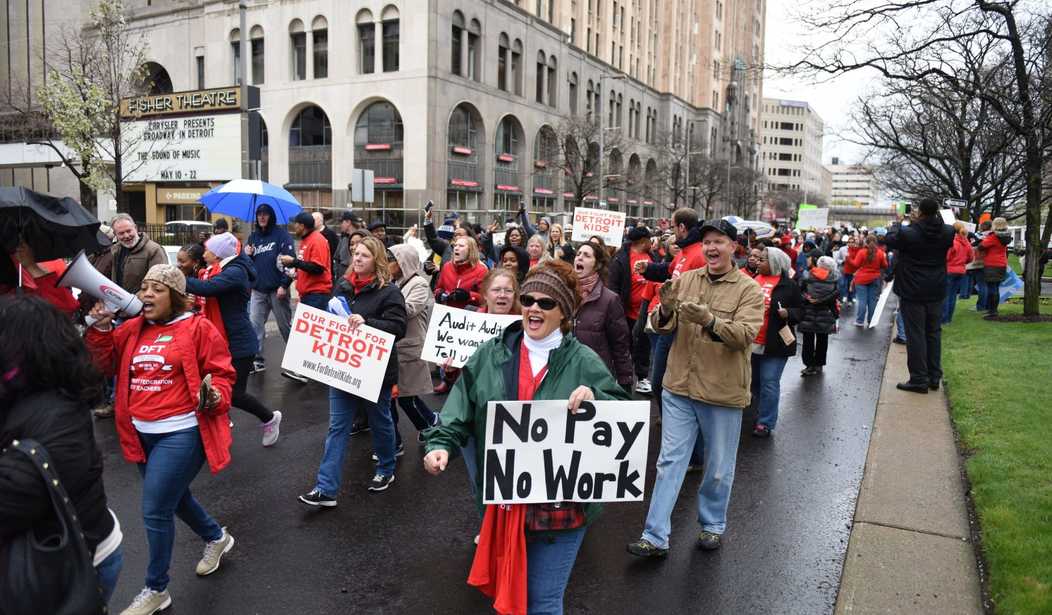WASHINGTON – Fresh out of college in 1988, Rebecca Friedrichs began her career as teacher in Southern California, where she met the catalyst for her crusade against school unions.
During that first year she met a teacher she labeled the “Witch,” a woman who, according to Friedrichs, grabbed the children by the arms and verbally abused them on a daily basis. She decided then that she didn’t want to join the local teachers union, paying into a system that protects teachers who abuse their students.
“I didn’t want to pay a union that put … her job security above the safety and education of small children, but I soon found out I didn’t have a choice,” Friedrichs recalled at the Heritage Foundation on Thursday.
Today, 22 states allow unions to be funded by compulsory dues. Public employees like teachers can opt out of the contracts, but in most cases the teachers are forced to pay agency fees instead, which often total the same amount, while the teacher gives up rights to have any say in the direction of the union. Fees can mean public employees forking over more than $1,000 a year, and opponents like Friedrichs believe it’s a violation of the First Amendment.
Friedrichs, who became the lead plaintiff in 2016 Supreme Court case Friedrichs v. California Teachers Association, offered details Thursday on how she sees teachers unions failing to represent their members.
After a decade in the field, Friedrichs relented and subscribed as a dues-paying member, eventually serving as secretary for her local union’s board. One school year, her district prepared to lay off several teachers, and with a last-in-first-out policy the younger teachers were at risk while tenured positions were secure.
Friedrichs said she spoke with union teachers, and claimed that the majority agreed on a pay cut so that they could save the jobs of the other teachers. But the union wouldn’t bargain on this point, she said, instead offering a seminar on how to obtain unemployment benefits.
“Those teachers were paying a thousand dollars a year for representation, and every last one of them was represented right out of a job,” Friedrichs said.
The compulsory dues system was upheld with the 1977 Abood v. Detroit Board of Education decision, though several groups challenged Abood’s constitutionality since. Friedrichs v. CTA reached its conclusion in 2016, when Justice Antonin Scalia unexpectedly died, resulting in a 4-4 split upholding the Abood decision.
Both the Obama administration and former California Attorney General Kamala Harris, now a Democratic senator who reportedly has White House aspirations, intervened in the Friedrichs case. After the High Court decision, Harris said in a statement that the case was about fairness, and the system in place allows California teachers to fight for fair wages.
“While no employee should be forced to pay for a union’s political speech outside the workplace, if a union represents all employees in negotiating and administering a collective bargaining agreement, then all the employees ought to share the costs of that representation,” Harris said. “This has been the standard for the last 40 years, and there is no reason for the Supreme Court to change course now.”
Two more cases, Janus v. AFSCME and Yohn v. CTA, are attempting to address issues that the plaintiffs believe were unresolved in the Friedrichs case. Jacob Huebert, an attorney for Liberty Justice Center, a plaintiff in the Janus case, said he’s hopeful that with the addition of Associate Justice Neil Gorsuch the Supreme Court will grant the petition when it returns for another term in October and decides the case before term’s end in June.









Join the conversation as a VIP Member